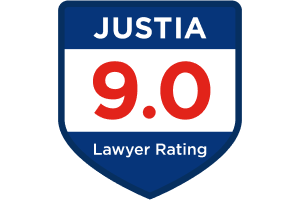- Free Strategy Session: (847) 906-3460 Tap Here to Call Us
Federal Employee Nest Eggs – Less Safe Than You Think

When federal government employees recommend an investment adviser who steals employee retirement funds, “sovereign immunity” prevents recovery against the government.
In many ways, the retirement savings of federal employees are safer than employees of private companies. The Thrift Savings Plan and other 401(k)-like plans offered by the federal government have fewer of the inappropriate investment options that are in many private employer retirement plans. But, as a recent Eleventh Circuit Court of Appeals decision reveals, federal employee retirement savings are still at risk. Alvarez v. the U.S., Case No. 16-16479 (11th Cir. July 17, 2017), available here.
According to the Eleventh Circuit
In the late 1980s, Kenneth Wayne McLeod began contracting with various federal agencies to provide retirement advice to federal law enforcement employees in Florida. McLeod founded and ran the Federal Employee Benefits Group, Inc. (“FEBG”) Bond Fund. Most of the federal employee investors met McLeod at retirement seminars hosted by their agency employer, where McLeod spoke generally about finances and retirement and also pitched his fund. McLeod would sometimes follow up with individual employees, promising high, secure returns in the FEBG Bond Fund.
Not surprisingly, federal employees invested in the FEBG Bond Fund. In 2010, when investigators questioned McLeod, he admitted the FEBG Bond Fund was a Ponzi scheme and committed suicide.
In an attempt to recover $30 million in losses, investors filed suit alleging that federal agency employees had failed to exercise reasonable care and made misrepresentations in recommending McLeod and the FEBG Bond Fund. So far, this is similar to many cases against private companies who recommend investment advisers to their employees.
But, unlike private employers, the government must consent to be sued. It has the discretion to invoke the defense of sovereign immunity — a doctrine that protects the government against lawsuits that it does not expressly authorize. Investors brought claims that the federal government was negligent in contracting with McLeod and that by doing so it gave the appearance of undue confidence in McLeod. They sought to fall within the Federal Tort Claims Act (“FTCA”), which authorizes certain tort claims against the federal government.
But, as the Eleventh Circuit said,
a court must strictly observe the ‘limitations and conditions upon which the Government consents to be sued’ and cannot imply exceptions not present within the terms of the waiver.” One such exception is the [FTCA] intentional tort exception, which bars:
[a]ny claim arising out of assault, battery, false imprisonment, false arrest, malicious prosecution, abuse of process, libel, slander, misrepresentation, deceit, or interference with contract rights . . .
The Eleventh Circuit ruled that that the alleged omissions during McLeod’s seminars, which gave investors “undue confidence in McLeod’s credibility,” constituted misrepresentations. The court found that all of the alleged negligent conduct of the agency employees from their failure to stop McLeod’s solicitation (non-communications) and their endorsement of McLeod was fundamentally based upon misrepresentations.
As a result, the federal government is immune from liability for recommending this scoundrel to its own employees.
Federal employees beware!






















